|
Salomé Ntububa is Regional Emergency Manager for Central and West Africa, Christian Aid in the DRC. From South Kivu, Salomé has worked as a humanitarian practitioner for over 17 years, in East and West African countries. Currently, Salomé Ntububa leads Christian Aid’s humanitarian responses in West and Central Africa, including monitoring the political and security situation to anticipate future interventions. Salomé joined us as The Mary Robinson Centre's Visiting Scholar from the 16th-21st of October 2016. Here she reflects on her experience in her own words. I would like to say thanks a million to The Mary Robinson Centre and all of you who are engaging in the programmes it promotes. Last week (16 to 21 October 2016), spent in both Galway and Mayo, was very empowering for me personally and has helped develop my humanitarian and advocacy work on Women Protection.
Talking to students and researchers at the Irish Centre for Human Rights, Gender ARC and the Centre for Global Women’s Studies at NUI Galway was a great experience which formed a bridge between my field practices on Gender-Human Rights and the academic experience. Together we share a comprehensive perspective to tackle violence and challenge injustice anywhere it is happening, such as in DR Congo. On Wednesday night, the film screening of War in Eastern Congo at the Ballina Library, Co Mayo, supported our communication and raised awareness about what is happening in DRC, the continual massacre, with a focus on the case of Beni. With the filmmaker, Dearbhla Glynn, we explained some challenges around this conflict and how it is important to continue to support women in Congo who have been so resilient and continue to fighting day to day for their livelihood and survival. I really appreciated the talk we had at Gortnor Abbey with youth as part of the ‘Bringing Human Rights to Life’ schools’ programme. Our open discussion was a reminder that as practitioners and scholars we should recognize the need to inform the grassroots and for all of us to seek information about what is happening in the rest of the world in different ways than what is presented on TV. Students clearly valued sharing the experiences of people who are engaged directly in day to day human rights activities. Young people are seeking feedback and accountable information on how support and help in reaching the most marginalized and vulnerable people in society. Citing the US election and press coverage of Trump’s campaign, they observed that it is often not as important to spend time listening to politicians’ debates which have no impact on saving people lives, or on promoting dignity and justice. Students wanted to know how they could be engaged more on supporting fundamental rights actions. Many thanks again for the celebration of the Congolese Culture at Ballyhaunis direct provision centre, which gave us the opportunity to share positive and peaceful lives of champion women actively working in their local communities to promote peace. Women living in this asylum seeker centre were really encouraged by the event and expressed their willingness to continue their participation towards building a better world for all, dispite where they are or what they have been through. This week was also a great opportunity for me and my organisation Christian Aid to thank the Irish people for the support that we are getting from Irish Aid funding and all the different forms of solidarity that we have via different Irish organisations – including the Mary Robinson Centre in – for our humanitarian, development and advocacy programmes in Congo. President Mary Robinson played a considerable role as the Special Envoy for Great Lakes Region of Africa from 2013-2015 and she continues to lobby and provide a huge support on the Peace and Security agenda to end conflict in DR Congo. This conflict has caused millions of deaths, millions of women and girls have been affected by gender based violence and enormous poverty created in such a very resource rich African country. This has been such a full and inspiring week, many thanks indeed Natasha, Susan and Dr. Reilly, wishing all the best and big success for The Mary Robinson Centre and its vision to inspire and foster personal leadership in the service of promoting human rights, gender equality, women's leadership and climate justice.
0 Comments
On Friday the 21st of October, The Mary Robinson Centre, in conjunction with Mayo Intercultural Action (MIA), hosted a celebration of Congolese culture at Ballyhaunis Direct Provision Centre with music, dancing and terrific Congolese food. Our International Visiting Scholar, humanitaritan practitioner Salomé Ntububa, from the Eastern Democratic Republic of Congo (DRC), spoke about about women rebuilding their communities in the DRC. Salomé had given several talks in academic, school and community settings in the West of Ireland earlier in the week, but we felt it was important to connect her inspiring story of hope with the local community most affected by the war in Congo. We are very grateful for the assistance of Kany Kanyeba Kazadi, MIA board member and passionate spokesperson for asylum-seekers and refugees. Kany is a former resident of Ballyhaunis, fluent in four languages and a terrific community activist. She helped at all stages of the event, from planning and internal promotion to translation and making sure everything went off without a hitch on the day itself. We are also grateful for the manager and staff of Ballyhaunis for supporting our work and for the inspiring women who joined us to celebrate - without all of their support this event would not have been possible. Kany Kazadi, in her own words...The news about the crisis in the Democratic Republic of Congo is rarely in Irish media headlines. So far but so close, Mary Robinson Centre created a great opportunity for the West of Ireland to learn about the crisis in Congo, particularly about violence and injustice suffered by women in the Eastern part of Congo. 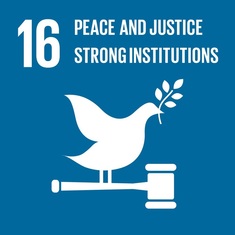 Mary Robinson spoke today at the UN General Assembly in New York about the vital importance of Sustainable Development Goal 16 to fully realising the 2030 Agenda and the full implementation of all Global Goals. In her keynote speech at the High-level Side Panel Achieving Peaceful, Just and inclusive Societies for Sustainable Development: Converting words into actions, Robinson stressed that the agreements made in 2015 – the Sustainable Development Agenda and the Paris Agreement on Climate Change – have “given the global community the best opportunity yet to avoid climate change, to end poverty and to enable all people to live lives underpinned by dignity and human rights.” President Robinson went on to discuss the linkages between G16, G10 Reduced Inequality and G5 Gender Equality, the importance of promoting human rights, equality and women's participation and leadership, and the central role these three goals have in achieving every one of the other Global Goals. "Gender equality is a crucial part of all Sustainable Development Goals. We cannot achieve peaceful, just and inclusive societies without equality." Citing the poet Seamus Heaney's famous lines, “if you have the words, there’s always a chance that you’ll find the way,” Robinson said that these crucial agreements have given us the words, and now we need to find the way to implement them. "We know that sustainable development is not possible without action on climate change, and climate action is not possible without sustainable development. Critically, neither is possible without the rule of law and access to justice, for all. For me, climate change is fundamentally a question of justice." Mary Robinson, 22 September 2016. Today's high-level event 'Peaceful, Just, and Inclusive Societies for Sustainable Development: Delivering on the 2030 Agenda' launched the ‘Global Alliance for Reporting Progress on Promoting Peaceful, Just, and Inclusive Societies,' which aims to harness the strengths and resources of members to support reporting on the achievement of Sustainable Development Goal (SDG) 16 and its interlinkages with the 2030 Agenda for Sustainable Development as a whole. The Permanent Missions of Cabo Verde, Mexico, Norway, Qatar, Sierra Leone and Tunisia to the UN organised the High-Level Launch Event and UN Development Programme will serve as facilitator for the Global Alliance. Goal 16 of the Sustainable Development Goals is ground-breaking in its acknowledgement of the failures previously to reduce poverty due to conflict and insecurity globally. It is perhaps even more ambitious than many of the other Goals, setting out a framework for peaceful societies, justice for all and good governance – to make peace lasting and sustainable. Within the Goal, targets focus on quite disparate but interlinked aims of ending all violence globally, eliminating child trafficking, torture and violence, reducing illicit arms and financial flows, universal birth registration transparency and accountability of institutions and full participation in decision. Helen Clark, Administrator of the United Nations Development Programme (UNDP), stated today “The aspirations of sustaining peace and sustaining development are intrinsically linked: we will not have one without the other. This is true not only within a country – in our highly interconnected world, violent conflict in one country has implications for others near and far, as we have seen with the current record numbers of refugees and internally displaced people,” (Clark's full speech can be found here). Goal 16: Promote peaceful and inclusive societies for sustainable development, provide access to justice for all and build effective, accountable and inclusive institutions at all levels. At The Mary Robinson International Symposium 2016, in July, we focussed on two interlinked targets within Goal 16 – the elimination of all forms of violence and the importance of responsive, participatory and representative participation in decision-making at all levels. Both of these targets have particular relevance for gender equality and connect ending all violence to building a sustainable peace. If you would like to see the panel President Robinson referred to in her speech at the UN today, you can watch it below. The rest of the panels at the two-day International Symposium can be found on our YouTube Channel here. Today we are delighted to shine a light on a very important organisation, Mayo Intercultural Action (MIA), whom we have been privileged to partner with at several events over the past couple of years. MIA does fantastic work in Mayo and we wanted to spread the word about the many inspiring projects they're working on. This piece was written by Natalya Pestova, the Coordinator at Mayo Intercultural Action. In 2004, Mayo Intercultural Action (MIA) was established to address the needs of migrants, asylum seekers and refugees living in County Mayo. For over a decade, MIA has promoted equality for people of all skin colours and ethnic backgrounds; delivered dozens of intercultural projects and events and helped hundreds of people from new communities to find information, access education and employment, meet friends and integrate into the local community. Working in partnerships with other local organisations sharing common values and principle, MIA supported integration and helped to advance interculturalism and diversity in Mayo. National Museum of Ireland, Turlough, is a great example of such partnership: it hosted a number of exhibitions and displays featuring Mayo migrant women. The recent exhibition ‘Migrant Women – Shared Experiences’ invited eight Mayo women from different countries to have the objects from their home countries displayed at the Museum so the visitors could relate to different cultures. The exhibition achieved important outcomes of promoting intercultural awareness and sharing positive vision of diverse Ireland. Most importantly, it allowed migrant women to become visible in the high profile public space and to represent their country, culture and personal story. The Immigration and Ireland Seminar was a culminating point to the exhibition that offered a space for sharing experiences and reflection on domestic and international challenges of integration. The Seminar connected global dimensions of contemporary refugee crisis presented by Professor Jane Freedman with local responses to immigration, including those delivered by Mayo Intercultural Action. Seminar organisers and participants: Susan Heffernan (Mary Robinson Centre), Natalya Pestova (MIA), Kany Kazadi (MIA), Prof. Jane Freedman (University of Paris), Vukashin Nedelkovich (Asylum Archive), Aoife O’Toole (National Museum of Ireland), Blessing Moyo (Eglington Self Help Group Galway), Rosa Meehan (National Museum of Ireland), Natasha Price (Mary Robinson Centre) The Immigration and Ireland Seminar allowed MIA representatives, Natalya Pestova - Project Coordinator and Kany Kazadi - MIA Board Member and passionate spokesperson, an opportunity to share their experience of promoting human rights for migrants and asylum seekers, giving voice and enabling migrant women to participate in all aspects of life in Ireland. Kany shared a few personal insights into the process of integration to Ireland, such as working in MIA, becoming a passionate GAA fun, getting used to Irish food, educating GMIT social science students about injustice in Ireland and developing a strong connection with Mayo - her new home. Kany Kazadi, speaking at the Immigration and Ireland Seminar, National Museum At their recent visit to the Mary Robinson Centre’s Symposium on Sustainable Development Goals the delegation of MIA women were delighted to learn about international development and to relate their local experience to the global issues. They were especially delighted to meet the most inspirational Mayo-Irish woman – Mary Robinson. Sanita Vecbrale (Latvia), Kate Donnely (MIA founder), Kany Kanyeba Kazadi (MIA Board Member), Mary Robinson, Phaw Shee Hta (Myanmar), Natalya Pestova (MIA coordinator), Say Lawla Say (Myanmar), Therese Ruane (MIA founder), Linda Herarty (Philippines) Migrant women are at the heart of MIA’s work. We have supported and witnessed migrant women taking up education challenges, starting up successful businesses, challenging racism, winning awards, featuring in local media, raising a generation of new Irish citizens children, exhibiting their art work, setting up language schools for their children, proudly supporting Mayo GAA team, climbing Croach Patrick, delivering intercultural awareness training, protesting against Direct Provision, running marathons, sharing their culture and tradition with Mayo people. Every day we witness real integration making its way to the hearts of Mayo and its communities.
If you would like to find out more about Mayo Intercultural Action, or if you are passionate about our cause, want to meet people from new communities or wish to help us in any way, please email us on miamayo@eircom.net, call us on (+353) (0)949044511 and like our Facebook page. On the 1st-2nd of July, The Mary Robinson Centre hosted our International Symposium 2016, The Sustainable Development Goals: Equality, Human Rights, Peace, in conjunction with the Centre for Global Women's Studies, NUI Galway at the Great National Hotel Ballina. The event was a fantastic success, with speakers and delegates who have particular interests in promoting equality, human rights and peace converging in Ballina from all over the world to learn from each other. We will be sharing more information about this fantastic event over the coming weeks and months, but today we wanted to draw your attention to this article in the Irish Times below, written by Paul Gillespie, the chair of our opening plenary session. To all those who joined us at the event, thank you for making it such a resounding success! Worldview: Gender and climate issues are linked |
Archives
January 2024
Categories |

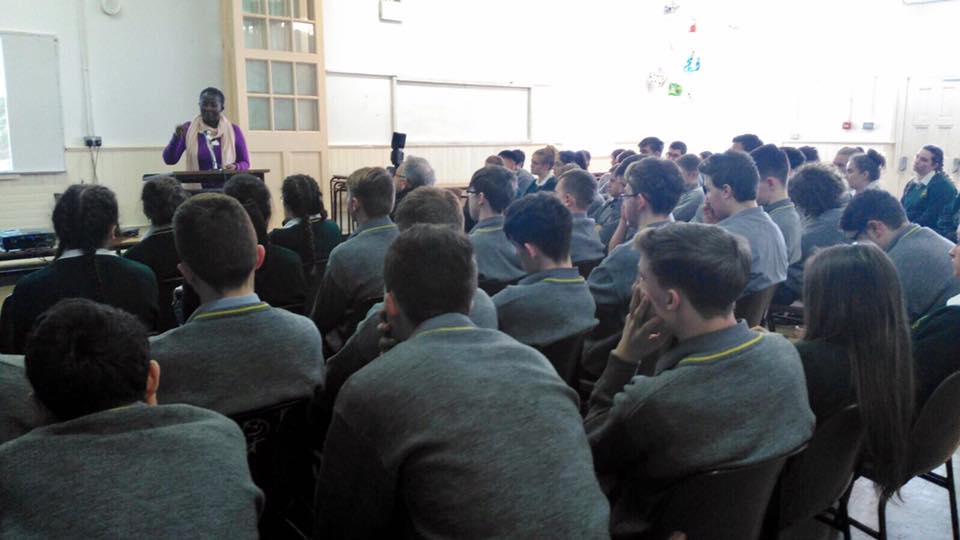
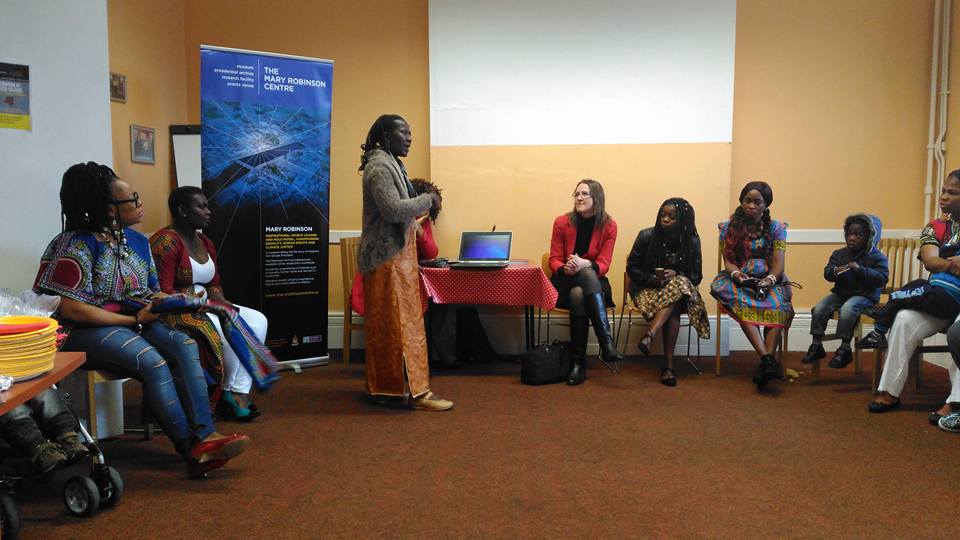
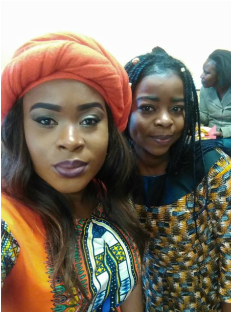
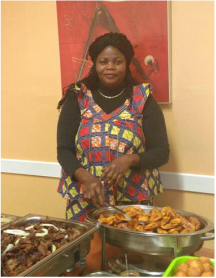
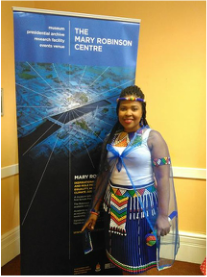
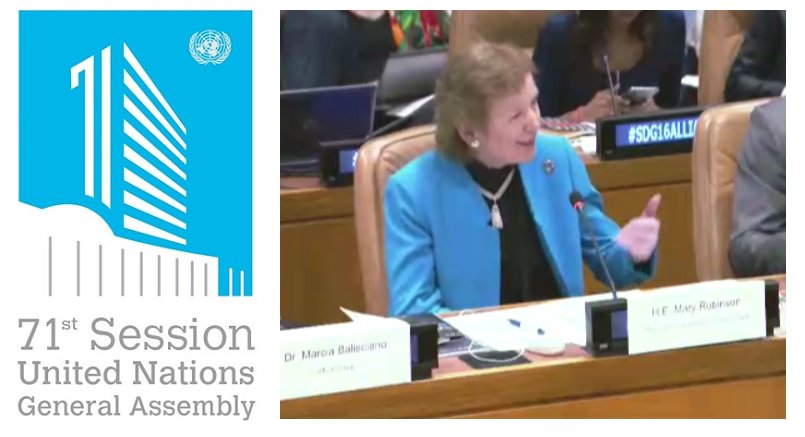
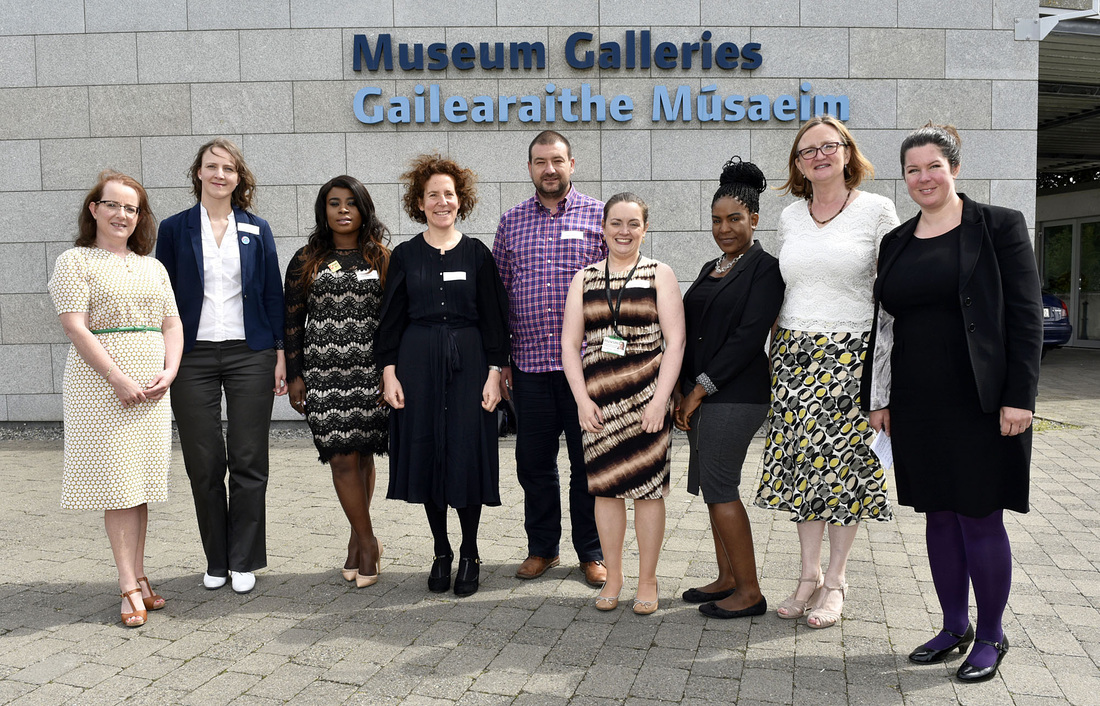
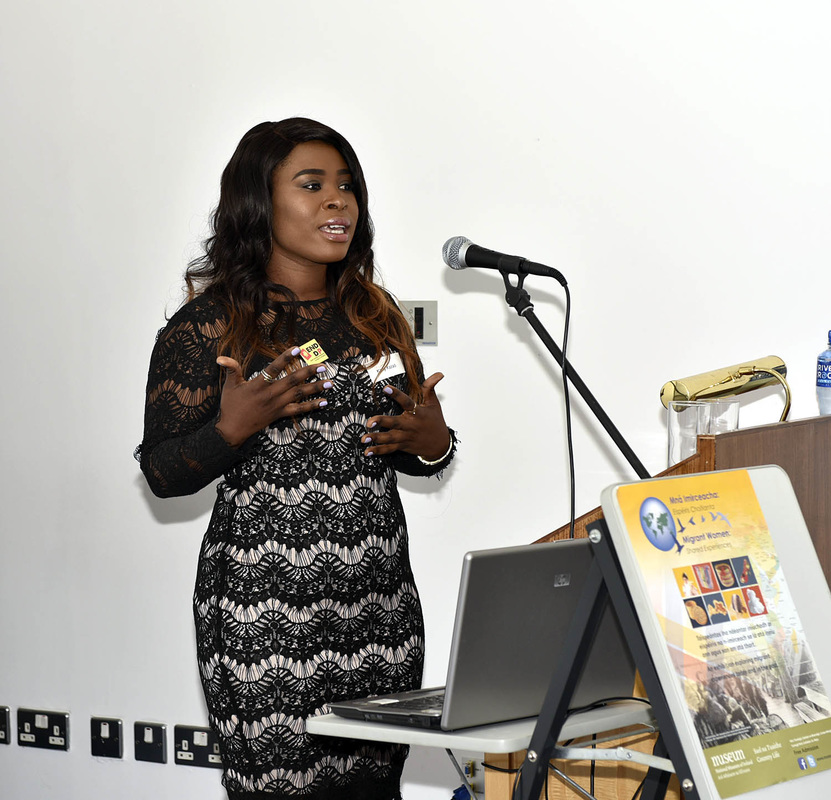
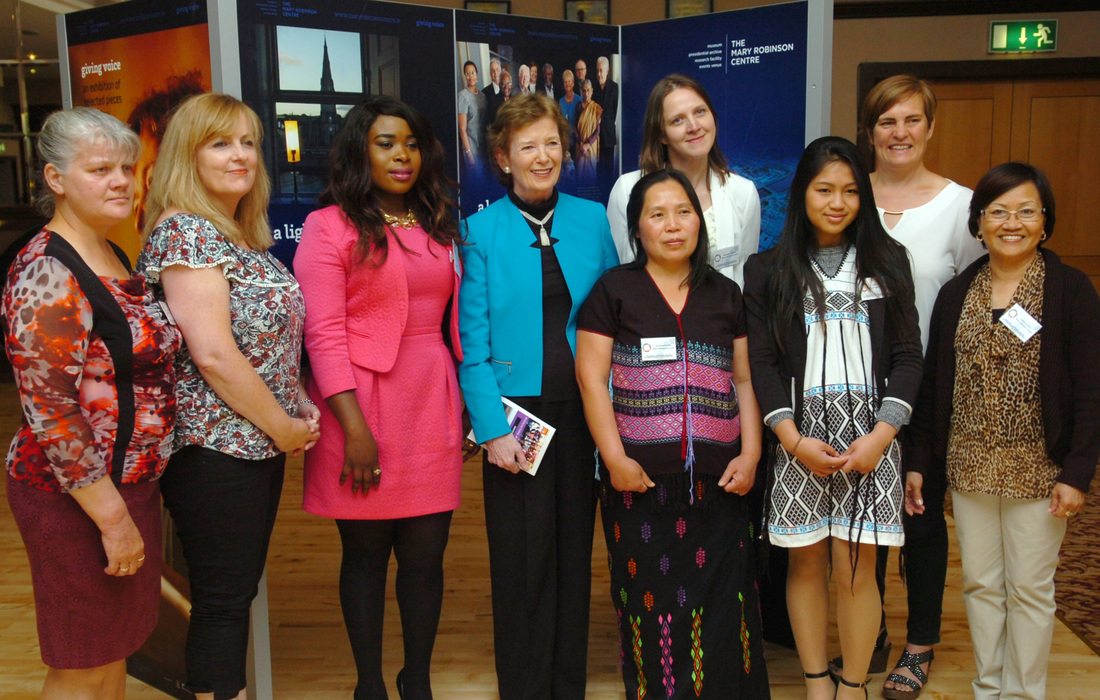
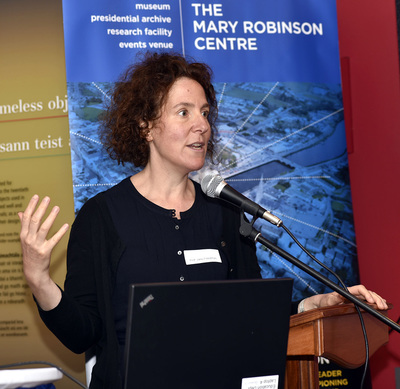
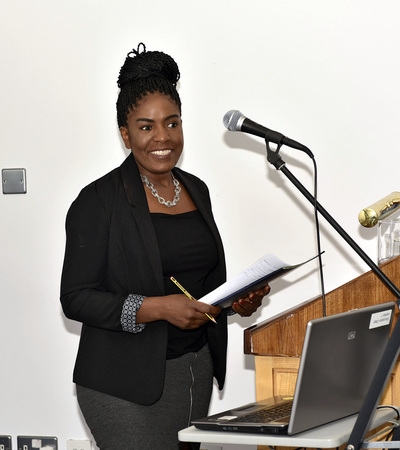
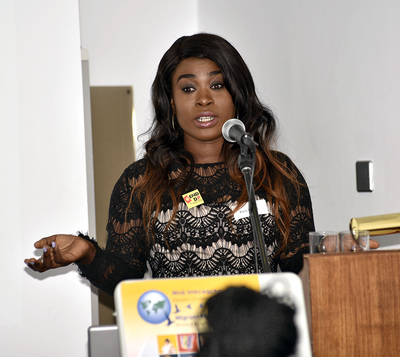
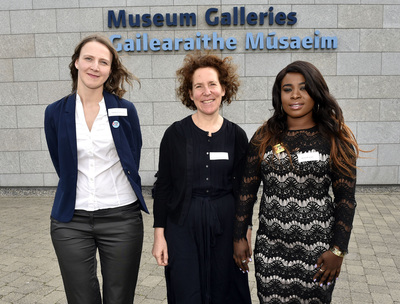
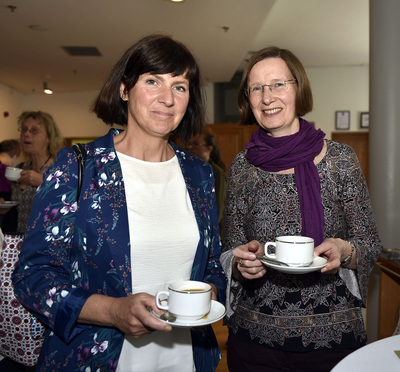
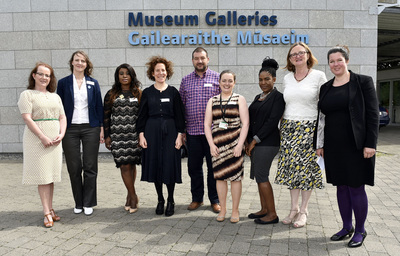
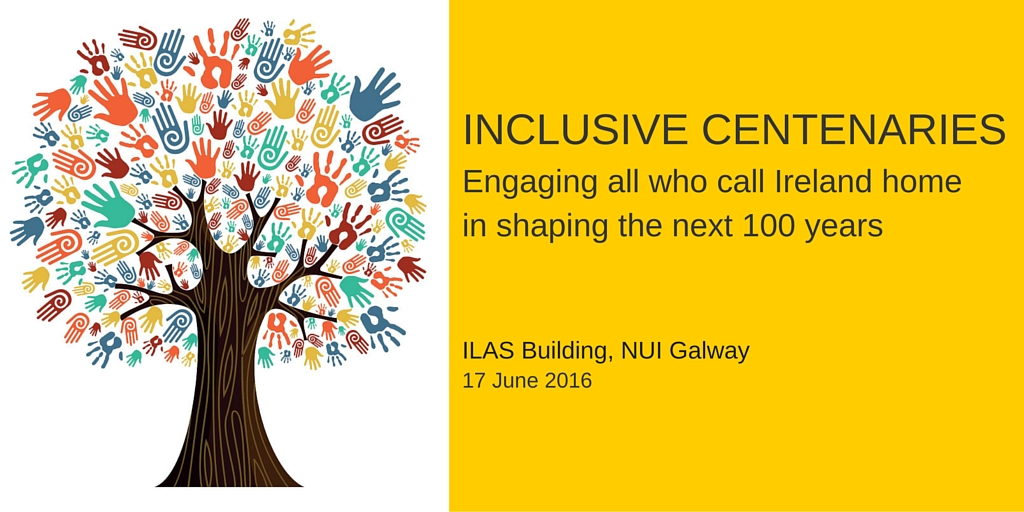
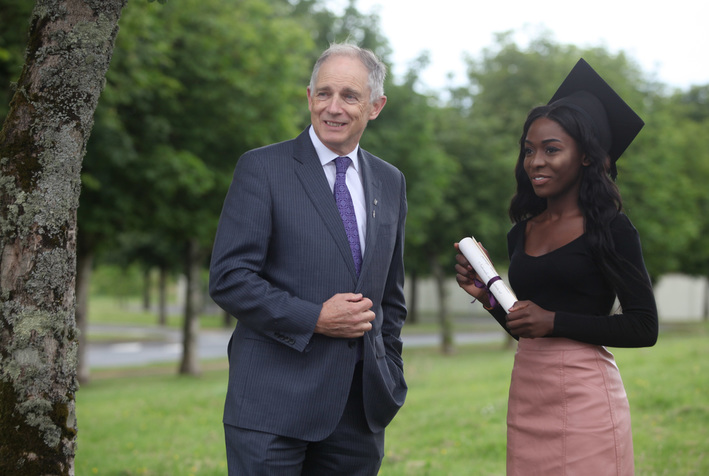
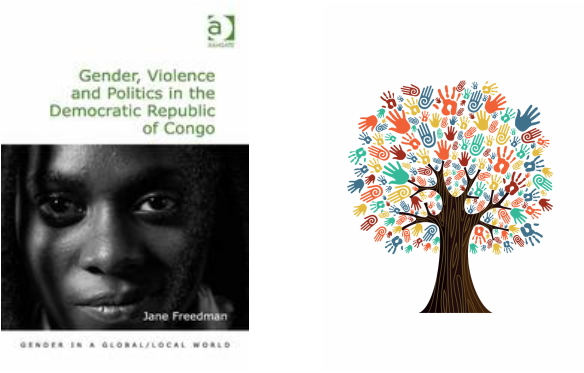
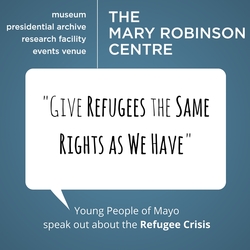
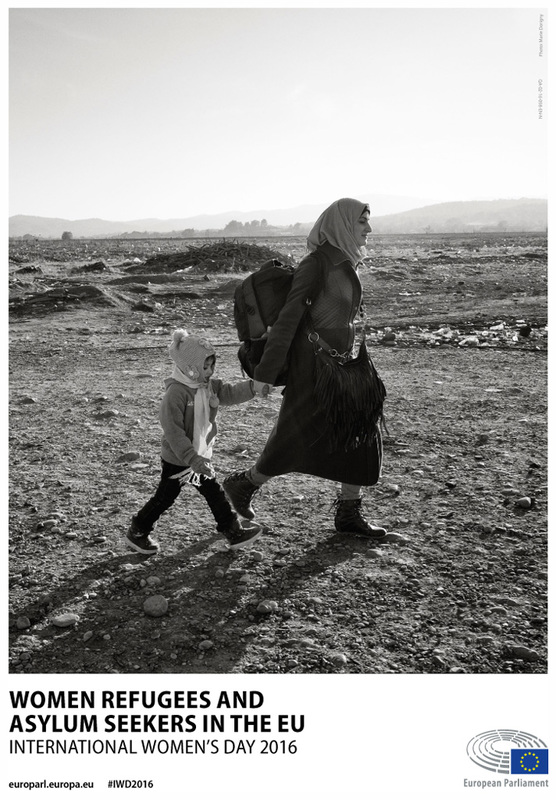
 RSS Feed
RSS Feed
